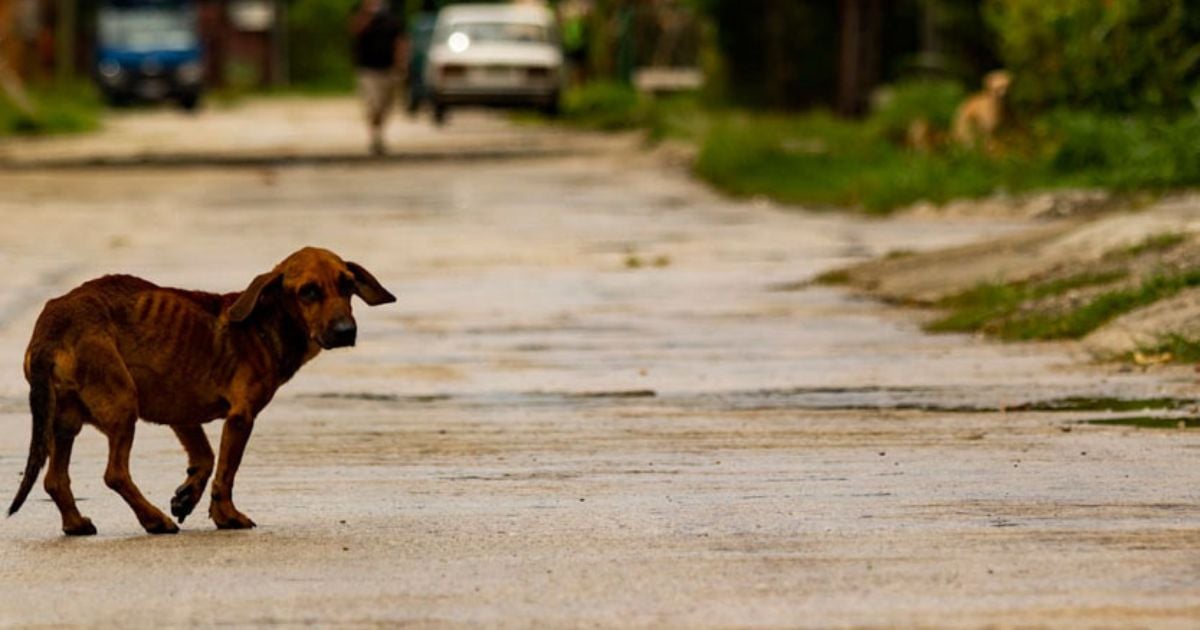
Related videos:
Three years after its approval, Decree-Law No. 31 on Animal Welfare remains only partially implemented in Cuba, leaving stray animals abandoned and unprotected in cities and rural areas.
According to an article published by journalist Lauren Pérez Muñoz in the state-run newspaper Invasor, the issues begin with the shortcomings of the state veterinary clinics, such as the one in the municipality of Chambas, in Ciego de Ávila.
Although they attend to everyone who comes in with their pets, they lack medications, equipment, and basic supplies necessary to perform more complex procedures.
"What happens to stray animals?" the author asks. The legislation states that they must be captured and taken to observation and rehabilitation centers, where they may later be put up for adoption, returned to their owners, or, as a last resort, euthanasia may be applied when necessary.
However, this process is not being followed, and abandoned animals continue to roam in extreme conditions, exposing themselves to hunger, diseases, and mistreatment, reported the government journalist.
In that regard, Odarlys Pérez Oria, head of Animal Health in Chambas, acknowledged that sterilization and vaccination campaigns are not being conducted because the clinic lacks the necessary equipment and medications.
"The Pharmaceutical Biological Laboratories (Labiofam), responsible for supplying the clinics, have only delivered supplies once this year," he stated.
They also lack sutures, anesthesia, and tranquilizers, which are essential supplies for ensuring proper veterinary care.
On the other hand, the Department of Hygiene and Epidemiology, which in the past practiced euthanasia on stray animals, now only conducts rabies vaccination campaigns. However, these campaigns do not include strays, as there are no owners to claim them.
In Chambas, for example, 6,000 animals were vaccinated this year, although none of them belonged to the unowned population.
Although Article 12 of the Decree-Law states that the National Center for Animal Health (Cenasa) is obligated to implement strategies and projects in favor of animal welfare, and that local People's Power bodies are responsible for managing and funding community programs for the same purpose, the reality is that a lack of resources, organization, and willingness has hindered the fulfillment of these provisions, Invasor reported.
The situation of stray animals reflects the structural and organizational shortcomings of the veterinary system in Cuba.
Although abuse and indiscriminate euthanasia have been banned, abandoned animals still lack access to vaccination campaigns, sterilization, and basic care, which perpetuates their suffering and makes them carriers of diseases that also affect the human population.
In the words of the journalist, "the law is written; the crux of the matter is that it is not always applied, whether because it cannot be, because someone does not want to, or because someone simply forgot that it exists."
To achieve true animal welfare, it is essential to strengthen veterinary care, study the populations of stray animals, and design effective strategies to ensure their care and protection.
Following the approval of the Animal Welfare Decree Law, animal protectors demanded modifications to its text, arguing that the penalties were not in line with the acts of cruelty that continued to occur in Cuba.
Frequently Asked Questions about Animal Welfare in Cuba
What is the current situation of stray animals in Cuba?
The situation of stray animals in Cuba is critical. Despite the existence of Decree-Law No. 31 on Animal Welfare, effective protection for these animals has not been implemented, leaving them exposed to hunger, disease, and abuse, with no access to basic health services or sterilization.
Why is the Animal Welfare Decree-Law not implemented in Cuba?
The Animal Welfare Decree-Law is not being properly enforced in Cuba due to a lack of resources, organization, and political will. Veterinary clinics lack the necessary medications and equipment, and there are no sterilization or vaccination campaigns for stray animals.
What role does the economic crisis play in the situation of animals in Cuba?
The economic crisis in Cuba has had a significant negative impact on animal care, as people prioritize their basic needs, leaving pets abandoned. Shelters are facing shortages of food and resources, further complicating the situation.
What has been reported about animal abuse in Cuba?
Animal abuse in Cuba is a growing problem. Although the government has acknowledged an increase in these cases and there are channels to report them, the lack of effective enforcement of laws and insufficient penalties allow these practices to persist. Activists are calling for changes in legislation to effectively protect animals.
Filed under: